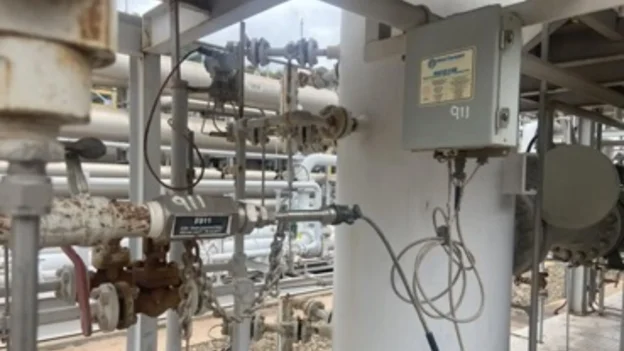During August 2025, the Morken Group technical team conducted a comprehensive assessment of the corrosion monitoring systems installed at a natural gas installed in a natural gas treatment plant located in Bolivia. This activity was part of the technical support actions aimed at reinforcing the client’s predictive maintenance routines.
Operational diagnosis of corrosion systems
The intervention focused on the operational review of eight points equipped with ER Data Loggers, devices that monitor in real time corrosion conditions in harsh industrial environments. The diagnostics included visual inspection, functional testing and evaluation of consumable items such as cables and batteries.
Three of the devices showed optimal operating conditions, which made it possible to validate their continuity without the need for intervention. However, three other devices showed signs of wear and signs of wear and tear mainly linked to the degradation of minor components, which could be solved by replacing batteries and standard maintenance.
In the remaining two cases critical failures were identified. Despite battery replacement, the equipment failed to restart operation. The main cause was attributed to advanced internal corrosion and sulfation and sulfation, a consequence of prolonged exposure without periodic maintenance. In response to this condition, Morken Group recommended complete replacement of the affected devices.
Recommendations and business continuity
This intervention not only made it possible to document the functional status of each monitoring point, but also to generate strategic recommendations to mitigate operational risks, optimize technical resources and improve the reliability of the system as a whole.
The information obtained provides technical value for the planning of future corrective actions and reinforces the importance of maintaining regular maintenance cycles, especially in environments exposed to extreme corrosive factors. This experience demonstrates how well-executed predictive maintenance allows preserving industrial assets and anticipating critical failures before they impact the operation.
Source and photo: Morken Group

